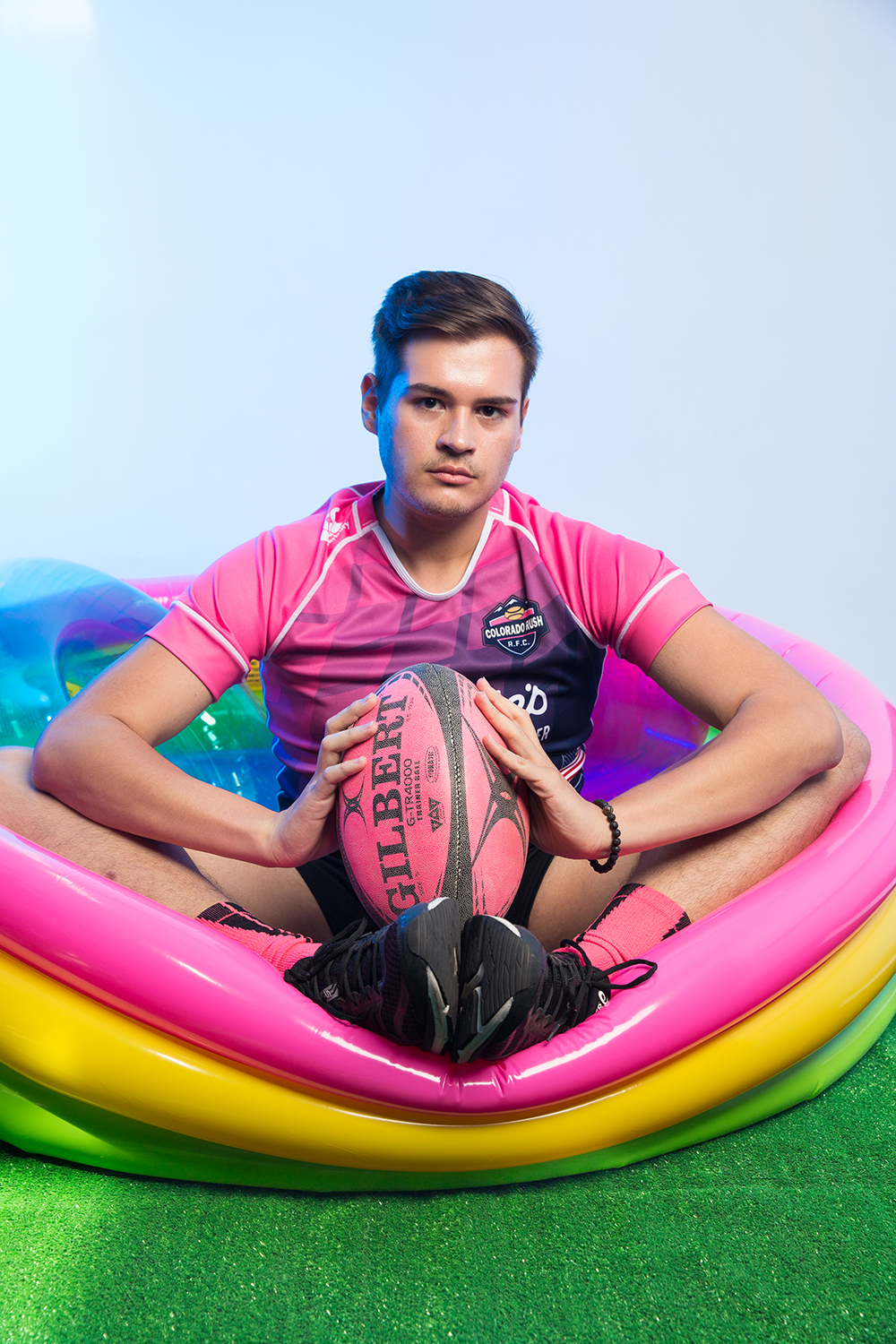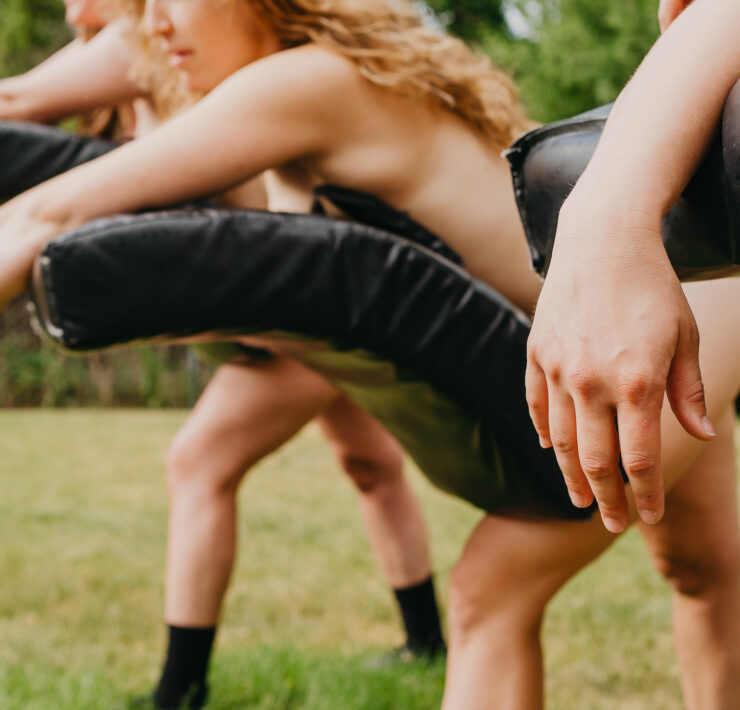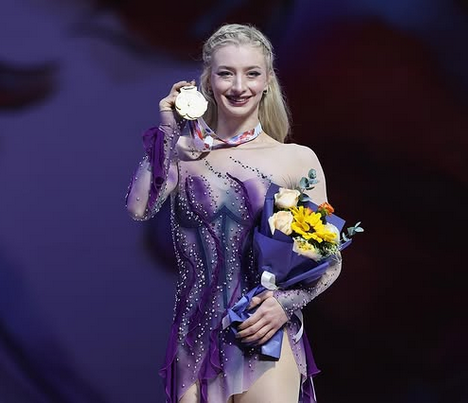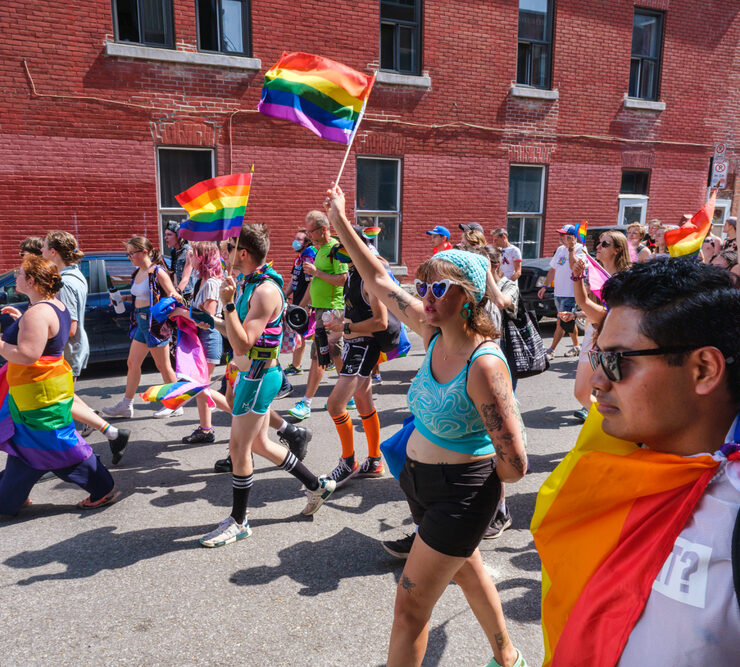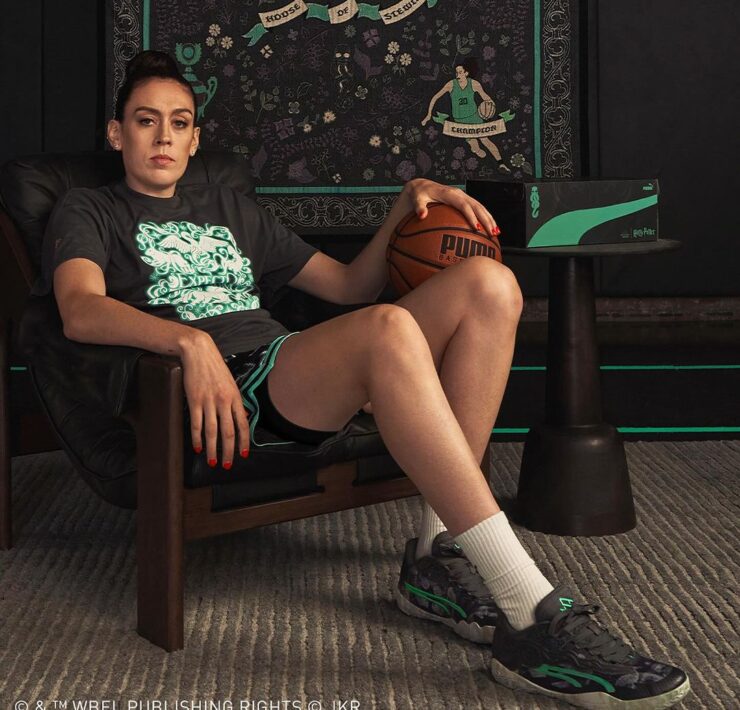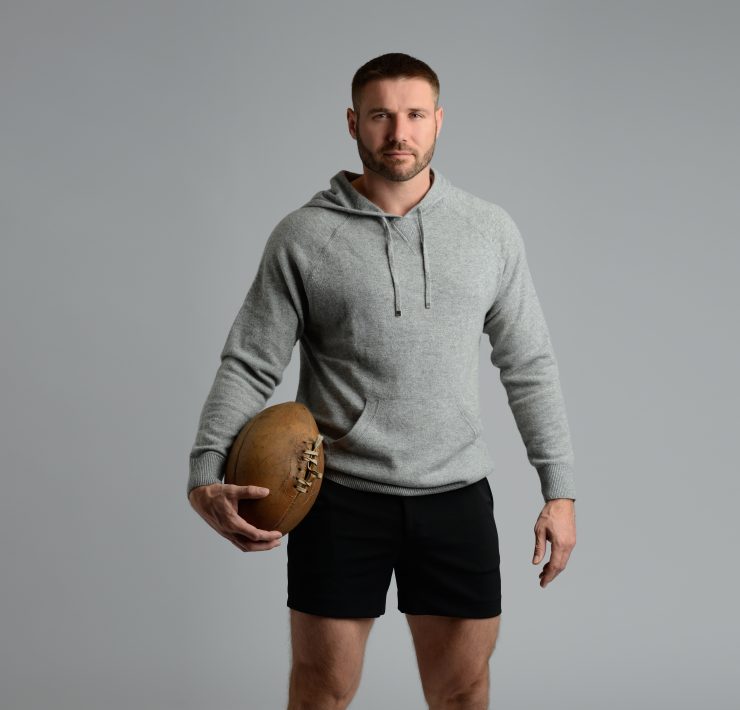Rushing to the Scrums in Amsterdam

Colorado Rush Heads Overseas to Compete in International LGBTQ Rugby Tournament
When Christian Vasquez first stepped onto the rugby pitch, he didn’t know that he was stepping into a whole new subculture that he had never been exposed to. He also didn’t know that he would fall in love with that culture, get in tune with his aggressive side, and start a fitness journey that was, as he said, “long overdue.”
Although Vasquez didn’t play sports growing up and considers himself an introvert, his dedication to making a lifestyle change pushed him to attend last fall’s sign-up for Colorado Rush, the queer-inclusive rugby team in Denver. He didn’t quite know what to expect, but enjoyed enough to regularly attend practices until his first game, which was—for lack of a better word—rough. When he failed to tackle an opponent low enough, he was swatted away and he injured his shoulder, benching him for a few weeks.
He didn’t quit, and now he’s less than a month away from boarding an international flight, travelling more than 4,500 miles to Amsterdam, and competing against more than 70 rugby teams in the ninth Bingham Cup, a rugby tournament that brings together queer-inclusive rugby teams from all over the world for a weekend of intense competition.
“I almost didn’t go back after that first game,” Vasquez said. “But, I was still trying to find my own in Denver and I wanted to push myself. I didn’t know what else would be so physically and mentally challenging at the same time. This is now my second season, and although no one understands my Drag Race references, I’ve fallen in love with Rush.”
He’s not the only one. Whether on the field tackling opponents or squeezing their faces between each others’ thighs, at Charlie’s selling Jello shots or taking the main stage in heels and wigs for dollars, or at beer bust sporting their navy and pink uniforms as they refill cups for some of Denver’s thirstiest men, Colorado Rush is unified through individuality.
“Everyone on that field is different,” Vasquez explained. “Some of us are really good at sports, and some of us aren’t. Some of us are queer; some are straight. Some are big and some are small. Everyone is welcome, and we have a lot of fun.”

Inclusive Rugby With Altitude
The club was formed in 2010 to provide an outlet for ametuer athletes in the Denver area to competitively play rugby. From its birth, Colorado Rush has accepted any player that wants to join regardless of the their age, race, sexual orientation, or athletic experience.
Colorado Rush is Colorado’s only inclusive rugby team in the Rocky Mountain Rugby Union, a mainstream rugby association centered in Denver. They play two seasons a year, with an average of six games per season. Every game is played against a majority straight team, which hasn’t raised any concerns yet.
“We are welcomed with open arms by the other teams,” player Aaron Friedrichsen said. “During the game some harsh words are said, but we always go out for a drink after each game and all the aggression is left on the field.”
Friedrichsen joined the team two years and five seaons ago, when he moved to Denver from Little Rock, Arkansas. As someone who works from home, he didn’t have much of a social outlet in Little Rock, but that all changed when he moved to Denver.
Looking to hang out with more people than just his boyfriend, Friedrichsen found his way to the rugby field by way of a flyer left on the floor at the Wrangler. He hadn’t played very many sports growing up, and those that he did were solo sports.
“It’s been life-changing,” he said. “I love the sport, of course. But this is one of the most intimate games you’ll play. Yeah, we shove our faces in each other’s crotches, but we form real bonds off the field as well. This is a brotherhood, and these men feel like my brothers.”
It’s not only a team-specific bond. The culture of rugby runs deep, and opposing teams form friendships off the pitch. After every game, the host teams throws the “third half,” where both teams drink, eat, and sing rugby songs. There are a lot of rugby songs.
The Game
The goal of the game is very simple—use the ball to score more points than the opposing team. You can run with the ball, kick it, or pass it backwards. Passing the ball forwards is prohibited and will land the player a penalty.
There are several ways to score points. If a player touches the ball down in the opponent’s goal area, this is called a “try” and the team receives five points. After a try, the team can attempt to kick the ball through the opponent’s goal posts, which is called a conversion and is worth two points. A “goal kick” is played after a penalty or a drop goal, where a player can attempt to kick the ball through the opponent’s goal post. If he succeeds, the team gets three points.
Rugby is a contact sport, allowing players to tackle an opponent in order to get the ball, as long as it is within the rules of contact.
Each team must have 15 players on the field for the entirety of both 40-minute periods. There are seven backs—players with a smaller build and quick feet who are responsible for moving the ball toward the goal line. There are eight forwards, like Friedrichsen and Vasquez, who have a bigger build and can often be seen in the pile-ups that surround the loose ball, aka a scrum.
Mike Fuller, or Mimi on the field, has been piling into the scrums since Colorado Rush began—pressing his shoulders to the buttcheeks of hundreds of men that have shown up to practices over the years. With two seasons a year, and many practices between games, commitment to the volunteer team is sometimes hard to come by. But those that stay find a home on an eager team, ready to have fun and smash a few opponents.
“We’ve come a long way from where we began,” he said. “The team is always changing from season to season, but we are leaps and bounds from where we started. I’ve seen a lot of faces come through here, but I wouldn’t take anyone else to the Bingham Cup.”
The Bingham Cup
Every two years, inclusive rugby teams from around the world flock to the most-attended LGBTQ rugby tournament to fight it out and secure that number-one spot. This year, they’ll be taking over Amsterdam.
First held in 2002, Bingham Cup is the premier global event promoting rugby union as an inclusive, non-discriminatory sport. It is named in memory of 9/11 hero and rugby player Mark Bingham, who was instrumental in establishing two of our leading gay rugby clubs: the San Francisco Fog and Gotham Knights.
At the time of Mark Bingham’s death, only six gay and inclusive rugby clubs existed anywhere in the world. Today, there are more than 60. Our current world champions are the Melbourne Chargers, who lifted the trophy for the first time in Nashville in 2016.
For many of Colorado Rush’s players this will be their first Bingham Cup.
“It’s unlike any other tournament I’ve ever been to,” Mimi said. “Most of the time we play against straight men, but at the Bingham Cup we aren’t the minority. We are with our people—and we have a damn good time.”
For Vasquez, it’s an important step in his personal growth, and a place to find more than two rugby players to catch his Drag Race references.
“I’m not sure what to expect,” he said. “But, if it’s anything like I’ve heard, it might be pretty life-changing.”’
Colorado Rush needs your help to get to the Bingham Cup! Donate to their Fundly and help them get there!
Photos courtesy Jeremiah Corder



